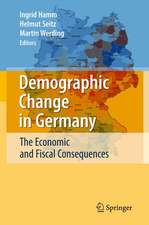Energy Transition: Financing Consumer Co-Ownership in Renewables
Editat de Jens Lowitzschen Limba Engleză Hardback – 22 ian 2019
Consumer (co-)ownership in renewable energy (RE) is essential to the overall success of Energy Transition. In June 2018, the European Union agreed on a corresponding enabling framework as part of a recast of the Renewable Energy Directive (RED II). The transposition of these comprehensive rules – in particular those on local RE communities – requires developing, implementing and rolling out business models that broaden the capital participation of consumers. The challenge is to include municipalities and/or commercial investors like SMEs and advance to economies of scale while retaining the benefits of individual consumer participation.
This book is addressed to energy consumers in local communities, their municipalities and to the policy makers who represent them. Additionally, non-EU countries, in particular those where rural areas have limited access to energy, e.g. in Asia, Africa and Latin America, may be interested in the benefits of consumer ownership. While demand for energy in developing countries is growing, access to energy is crucial for improving the quality of life.
The editor of this book presents a new model of consumer ownership in RE for both the EU and countries worldwide. Part One describes the rationale for consumer ownership in RE with regard to social, organizational, legal and financial conditions. Part Two discusses the issue of financing RE and introduces a new financing technique, the Consumer Stock Ownership Plan (CSOP), comparing it to traditional models. Part Three provides 18 country studies from Europe, North America, South America and Asia, organized so as to enable a cross-country comparison of policy approaches and feasibility. Policy recommendations are based on the results of this survey. Part Four summarizes, compares the best practice cases, presents a cost-benefit analysis of “prosumage” and against this background evaluates the impact on future policy.
Preț: 1132.33 lei
Preț vechi: 1380.90 lei
-18% Nou
Puncte Express: 1698
Preț estimativ în valută:
216.67€ • 226.79$ • 180.34£
216.67€ • 226.79$ • 180.34£
Carte tipărită la comandă
Livrare economică 31 martie-14 aprilie
Preluare comenzi: 021 569.72.76
Specificații
ISBN-13: 9783319935171
ISBN-10: 3319935178
Pagini: 737
Ilustrații: XXVI, 794 p. 24 illus.
Dimensiuni: 148 x 210 x 53 mm
Greutate: 1.12 kg
Ediția:1st ed. 2019
Editura: Springer International Publishing
Colecția Palgrave Macmillan
Locul publicării:Cham, Switzerland
ISBN-10: 3319935178
Pagini: 737
Ilustrații: XXVI, 794 p. 24 illus.
Dimensiuni: 148 x 210 x 53 mm
Greutate: 1.12 kg
Ediția:1st ed. 2019
Editura: Springer International Publishing
Colecția Palgrave Macmillan
Locul publicării:Cham, Switzerland
Cuprins
1. Introduction – The Challenge of Achieving the Energy Transition (Lowitzsch).- Part I. Rationale for Consumer Ownership in Renewable Energies.- 2. From Fossil to Renewable Energy Sources (Croonenbroeck/Lowitzsch).- 3. The Consumer at the Heart of the Energy Markets? (Lowitzsch).- 4. Energy Justice, Energy Democracy and Sustainability: Normative Approaches to the Consumer Ownership of Renewables (Jenkins).- 5. Consumer (Co-)Ownership and Behaviour: Economic Experiments as a Tool for Analysis (Yildiz/Sagebiel).- Part II. Consumer (Co-)Ownership: Conventional Models and Consumer Stock Ownership Plans.- 6. Financing Consumer (Co-)Ownership of Renewable Energy Sources (Holstenkamp).- 7. Renewable Energy Cooperatives (Lowitzsch/Hanke).- 8. The CSOP-Financing Technique: Origins, Legal Concept and Implementation (Lowitzsch).- 9. The Life Cycle of a CSOP Investment: Sample Calculation for a German Wind Turbine (Croonenbroeck/Slevec).- Part III. Country Reports: The European Union and Associated Countries (Bilateral Agreements).- 10. Consumer (Co-)Ownership in Renewables in the Czech Republic (Malý/Šafařík/Matoušek).- 11. Consumer (Co-)Ownership in Renewables in Denmark (Ronne/Nielsen).- 12. Consumer (Co-)Ownership in Renewables in France (Yalcin/Wokuri/Gauthier).- 13. Consumer (Co-)Ownership in Renewables in Germany (Yildiz/Gotchev/Holstenkamp/Müller/Radtke/Welle).- 14. Consumer (Co-)Ownership in Renewables in Italy (Borroni/van Tulder).- 15. Consumer (Co-)Ownership in Renewables in the Netherlands (Akerboom/van Tulder).- 16. Consumer (Co-)Ownership in Renewables in Poland (Goebel).- 17. Consumer (Co-)Ownership of Renewables in England and Wales (UK) (Willis/Simcock).- 18. Consumer (Co-)Ownership in Renewables in Scotland (UK) (Krug/Hagget/Veelen).- 19. Consumer (Co-)Ownership in Renewables in Spain (Díaz Foncea/Bretos).- 20. Consumer (Co-)Ownership in Renewables in Switzerland (Ebers/Schmid/Stauch/Viuchard).- 21. Consumer (Co-)Ownership in Renewables in California (USA) (van Tulder/Klein/Morgan).- 22. Consumer (Co-)Ownership in Renewables in Ontario (Canada) (McMurtry/Tarhan).- 23. Consumer (Co-)Ownership in Renewables in Brazil (Böckler/Giannini).- 24. Consumer (Co-)Ownership in Renewables in Chile (Feron/Baigorrotegui/Parker/Opazo).- 25. Consumer (Co-)Ownership in Renewables in India (Mishra/Lowitzsch).- 26. Consumer (Co-)Ownership in Renewables in Pakistan (Memon/Hussain).- 27. Consumer (Co-)Ownership in Renewables in Japan (Raupach-Sumiya).- Part IV. Summary of the Results and Their Implications for Policy-Making.- 28. Institutional Aspects of Consumer (Co-)Ownership in RE Energy Communities (Baigorrotegui/Lowitzsch).- 29. Solar Prosumage: An Economic Discussion of Challenges and Opportunities (Schill, Zerrahn,Kunz).- 30. Outlook: Energy Transition and Regulatory Framework 2.0: Insights from the European Union (Gauthier/Lowitzsch).- 31. Conclusions: The Role of Consumer (Co-)Ownership in the Energy Transition (Lowitzsch).
Notă biografică
Jens Lowitzsch is Kelso-Professor of Law and Economics at the European University Viadrina in Frankfurt (Oder), Germany, since 2010. He teaches Comparative Law, East European Economic Law and European Legal Policy.
Textul de pe ultima copertă
Consumer (co-)ownership in renewable energy (RE) is essential to the overall success of Energy Transition. In June 2018, the European Union agreed on a corresponding enabling framework as part of a recast of the Renewable Energy Directive (RED II). The transposition of these comprehensive rules – in particular those on local RE communities – requires developing, implementing and rolling out business models that broaden the capital participation of consumers. The challenge is to include municipalities and/or commercial investors like SMEs and advance to economies of scale while retaining the benefits of individual consumer participation.
This book is addressed to energy consumers in local communities, their municipalities and to the policy makers who represent them. Additionally, non-EU countries, in particular those where rural areas have limited access to energy, e.g. in Asia, Africa and Latin America, may be interestedin the benefits of consumer ownership. While demand for energy in developing countries is growing, access to energy is crucial for improving the quality of life.
The editor of this book presents a new model of consumer ownership in RE for both the EU and countries worldwide. Part One describes the rationale for consumer ownership in RE with regard to social, organizational, legal and financial conditions. Part Two discusses the issue of financing RE and introduces a new financing technique, the Consumer Stock Ownership Plan (CSOP), comparing it to traditional models. Part Three provides 18 country studies from Europe, North America, South America and Asia, organized so as to enable a cross-country comparison of policy approaches and feasibility. Policy recommendations are based on the results of this survey. Part Four summarizes, compares the best practice cases, presents a cost-benefit analysis of “prosumage” and against this background evaluates the impact on future policy.
Caracteristici
Presents methodology and measures to demonstrate best practice in how such a co-ownership model could work Provides case studies highlighting experiences from various parts of the world Introduces new financing instruments for facilitating energy transition

























